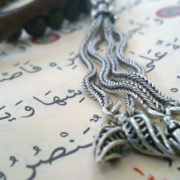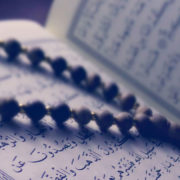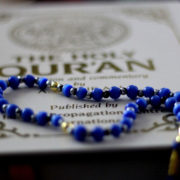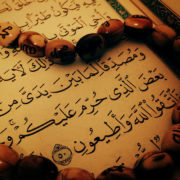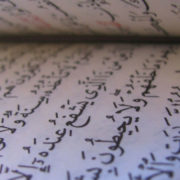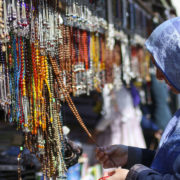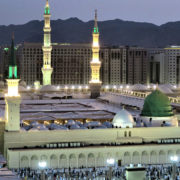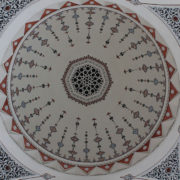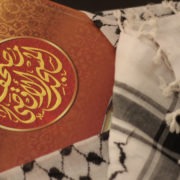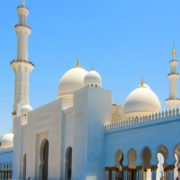NECESSITY OF GIVING MORE FOR CHARITY:
A Relatively Ignored phenomenon by many Muslims
By. Dr. Amir Parviz Parsa
Introduction:
Sadly many practicing Muslims have ignored giving enough in charity or for good causes. It is the purpose of this brief writing to remind them of their duties and setting up their priorities in a right manner, rather than ignoring something which is very significant.
We are told that Abu Bakr, one of the four Khalifas, gave everything he had for the pleasure of God and for the advancement of Islam. It is also narrated to us that Ali Ibn Abi Talib used to dig up wells to extract water from them to establish date gardens and their products were frequently given to the poor and the needy. We are also informed that Omar Ibn Khattab also gave half of everything he possessed for the progress of Islam.
Are we then stingy, or unwilling, to set up our priorities right, or what?
Some Reminders from the Holy Quran:
Verse 77 of Surah 28 says:
| وَابْتَغِ فِيمَا آتَاكَ اللَّهُ الدَّارَ الْآخِرَةَ وَلَا تَنسَ نَصِيبَكَ مِنَ الدُّنْيَا وَأَحْسِن كَمَا أَحْسَنَ اللَّهُ إِلَيْكَ وَلَا تَبْغِ الْفَسَادَ فِي الْأَرْضِ إِنَّ اللَّهَ لَا يُحِبُّ الْمُفْسِدِينَ |
| “But seek with the wealth that God has bestowed on you, the Abode of the Hereafter, nor forget thy portion in this world; but do thou good as God has been good to thee and seek not mischief in the land….” |
There is great pleasure in giving to charities, but that does not mean you have to impoverish yourself, or live like a poor person.
Verse 2 of Surah 35 also informs us that whatever God, out of His Mercy, wants to give to someone, there is none who can withhold it & vice versa. He says:
| مَا يَفْتَحِ اللَّهُ لِلنَّاسِ مِن رَّحْمَةٍ فَلَا مُمْسِكَ لَهَا وَمَا يُمْسِكْ فَلَا مُرْسِلَ لَهُ مِن بَعْدِهِ وَهُوَ الْعَزِيزُ الْحَكِيمُ |
| What Allah out of his Mercy does bestow on mankind there is none can withhold: what He does withhold, there is none can grant, apart from Him: and He is the Exalted in Power, full of Wisdom. |
Verses 7 and 8 of Surah 99 also verify that even an atom’s weight of goodness or evil shall not be ignored. The Ayahs say:
| فَمَن يَعْمَلْ مِثْقَالَ ذَرَّةٍ خَيْرًا يَرَهُ وَمَن يَعْمَلْ مِثْقَالَ ذَرَّةٍ شَرًّا يَرَهُ |
So. he who has done an atom’s weight of good shall see it
And he who has done an atom’s weight of evil shall see it. |
Verse 20 of Surah Hadeed (57) informs the believers:
| اعْلَمُوا أَنَّمَا الْحَيَاةُ الدُّنْيَا لَعِبٌ وَلَهْوٌ وَزِينَةٌ وَتَفَاخُرٌ بَيْنَكُمْ وَتَكَاثُرٌ فِي الْأَمْوَالِ وَالْأَوْلَادِ… |
| “Know you all that the life of this world is but play and amusement, pomp and mutual boasting and multiplying in rivalry, among yourselves, riches and children…. |
Giving in charity is like a loan to God, and Verse 18 of Surah 57 tells us that those who give in charity are giving a beautiful loan to God, there shall be manifold increases.
| إِنَّ الْمُصَّدِّقِينَ وَالْمُصَّدِّقَاتِ وَأَقْرَضُوا اللَّهَ قَرْضًا حَسَنًا يُضَاعَفُ لَهُمْ وَلَهُمْ أَجْرٌ كَرِيمٌ |
| For those who give in Charity, men and women, and loan to Allah a Beautiful Loan, it shall be increased manifold to their credit, and they shall have, besides, a liberal reward. |
Verse 261 of Surah 2 tells us that the worth of charity giving might become seven hundred times or more in return, if God wants to reward it. Show me an investment which would immediately become seven hundred times or more, right away, other than this! The Ayah says:
| مَّثَلُ الَّذِينَ يُنفِقُونَ أَمْوَالَهُمْ فِي سَبِيلِ اللّهِ كَمَثَلِ حَبَّةٍ أَنبَتَتْ سَبْعَ سَنَابِلَ فِي كُلِّ سُنبُلَةٍ مِّئَةُ حَبَّةٍ وَاللّهُ يُضَاعِفُ لِمَن يَشَاء وَاللّهُ وَاسِعٌ عَلِيمٌ |
| The parable of those who spend their substance in the way of Allah is that of a grain of corn: it grows seven ears, and each ear Has a hundred grains. Allah gives manifold increase to whom He pleases: And Allah cares for all and He knows all things. |
Verse 195 of Surah 2 tells us:
| وَأَنفِقُواْ فِي سَبِيلِ اللّهِ وَلاَ تُلْقُواْ بِأَيْدِيكُمْ إِلَى التَّهْلُكَةِ وَأَحْسِنُوَاْ إِنَّ اللّهَ يُحِبُّ الْمُحْسِنِينَ |
| And spend in the way of Allah and cast not yourselves to perdition with your own hands, and do good (to others); surely Allah loves the doers of good. |
As Muslims we have several responsibilities to God, to the society, to our families, and to ourselves. There is an expression in Persian which tells us if there is a light that the household needs it, it would be forbidden to be given away even to a mosque.
The Prophet (pbuh) has admonished us in the following Hadiths:
- Allah loves moderation, and dislikes excess even in charity.
- The believer is the one whose earning is unblemished and wholesome, whose character is righteous, whose intention is sound, who gives in charity, refrains himself from frivolous talk, does not harm others, and puts others above himself in terms of fairness.
- If a Muslim plants a field or a tree, and men, birds, and beasts eat of it, then it will be considered as an act of charity.
- Smiling at your brother is charity.
- A good word in itself is charity.
| أفضَلُ الصَدَقهِ، أن تَصدَّق وأنت صَحيحٌ شَحيحٌ تَأمَلُ الغِنَىْ وتخشى الفَقْر |
| The Good Charity Is To Give Of Your Wealth When You Are A Miser And You Hope To Be Rich And Are Afraid Of Poverty. |
| ورجلٌ تَصدَّق بصدقَةٍ فأخفاها حتى لا تَعلمَ شِمالُهُ ما تُنفقُ يَميـنَه |
| The Best Of Alms Is What The Right Hand Gives, And The Left Hand Does Not Know Of It
Bukhari |
People of other religions occasionally make more sacrifices than we do. Although this cannot be accurately measured/generalized, pragmatic observations show that Jews have many hospitals, factories, mass communication media, etc. than we do as Muslims. We are not to be jealous of them at all, but you shall sow what you reap. When and if they make more sacrifices, they deserve to benefit from their rewards also. Indeed we have been made vicegerents of Allah on the planet earth, and as He is so Kind and Compassionate, as well as Most Merciful and Overly Generous, we must constantly remember that we do not deserve to be deputies of God when we ignore the legitimate needs of the others.
In fact, according to verse 19 of Surah 51, in the wealth of Believers there is a given right, set aside for the needy and for the Prevented (from asking) people.
| وَفِي أَمْوَالِهِمْ حَقٌّ لِّلسَّائِلِ وَالْمَحْرُومِ |
| And in their wealth and property is a portion due to the one who begs and to the one who is indigent |
A cursory glance at the style of living of many Muslims clearly shows that they live in luxury houses, have multiple cars, all amenities, appliances, furniture and other things that they need; yet very easily they neglect the fact that there might be someone in their community who does not have anything to eat for dinner and must go to bed by being hungry!
We are told that the Leader of believers, Ali Ibn Abi Talib used to consider forty houses on his four sides with the hope that there won’t be any one going to sleep hungry at night and poor while he had something to eat with his family.
Cases of conspicuous Consumption and real wasteful patterns of living have also been observed, even among practicing Muslims. Can we become more aware of each other’s urgent needs and attend to them too?
Everyone who earns his wealth and property decently has the absolute right of benefiting from them without restrictions, anyway they please so long as it is not against Shari’ah and the laws. Yet, morally and logically, one has to be also cognizant of the urgent needs of others who try not to beg others for help, yet they are really among the needy and the poor. When we ignore the desperate needs of the others and become too selfish for our own needs, especially when they can be minimized, then that is the beginning point of our responsibility before God.
A question that comes to mind is: Why are people of some countries who are Muslims so reluctant to give, while Muslims of other countries donate so much more willingly? There are different answers to this, one of which is cultural backgrounds and views that some individuals hold regarding their clergy.
Guideline for Actions:
Now we need to be looking at a few other verses of the Holy Quran and set them as our Guide for life and the style of living that we should adopt:
In a majority of the verses of the Holy Quran when orders are given to establish regular prayers (Salat), the sentences are followed by “Giving regular Charity”. See, for instance, verse 43 of Surah two. This should serve as a reminder of the significance of giving charity (Zakat or Alms).
| وَفِي أَمْوَالِهِمْ حَقٌّ لِّلسَّائِلِ وَالْمَحْرُومِ |
| And in their wealth and property is a portion due to the one who begs and to the one who is indigent |
Allah (swt) says in Verse 155 of Surah 2:
| وَلَنَبْلُوَنَّكُمْ بِشَيْءٍ مِّنَ الْخَوفْ وَالْجُوعِ وَنَقْصٍ مِّنَ الأَمَوَالِ وَالأنفُسِ وَالثَّمَرَاتِ وَبَشِّرِ الصَّابِرِينَ |
| And We will most certainly try you with somewhat of fear and hunger and loss of property and lives and fruits; and give good news to the patient, |
We all know that people generally like their assets and wealth. In the definition of “Goodness” in verse 177 of Surah 2, Allah swt mentions, among other things, that it is goodness to give and spend out of your substance, “out of love for Him, for your kin, for orphans, for the needy, for the wayfarer, for those who ask, and for the ransom of slaves…”. Stated differently, we do not have to be and are not in the dark as to who should be receiving our charities.
| لَّيْسَ الْبِرَّ أَن تُوَلُّواْ وُجُوهَكُمْ قِبَلَ الْمَشْرِقِ وَالْمَغْرِبِ وَلَـكِنَّ الْبِرَّ مَنْ آمَنَ بِاللّهِ وَالْيَوْمِ الآخِرِ وَالْمَلآئِكَةِ وَالْكِتَابِ وَالنَّبِيِّينَ وَآتَى الْمَالَ عَلَى حُبِّهِ ذَوِي الْقُرْبَى وَالْيَتَامَى وَالْمَسَاكِينَ وَابْنَ السَّبِيلِ وَالسَّآئِلِينَ وَفِي الرِّقَابِ…. |
| It is not righteousness that you turn your faces towards the East and the West, but righteousness is this that one should believe in Allah and the last day and the angels and the Book and the prophets, and give away wealth out of love for Him to the near of kin and the orphans and the needy and the wayfarer and the beggars….. |
God also recommends a balance between what you shall give and what you should keep for you and your family.
Verse 29 of Surah17 tells us:
| وَلاَ تَجْعَلْ يَدَكَ مَغْلُولَةً إِلَى عُنُقِكَ وَلاَ تَبْسُطْهَا كُلَّ الْبَسْطِ فَتَقْعُدَ مَلُومًا مَّحْسُورًا |
| And do not make your hand to be shackled to your neck nor stretch it forth to the utmost (limit) of its stretching forth, lest you should (afterwards) sit down blamed, stripped off. |
Verse 207 0f Surah 2 tells us about those who become overly generous for the cause of God: “And there is the type of man who gives his life to earn the pleasure of God; and God is full of kindness to (His) devotees.”
| وَمِنَ النَّاسِ مَن يَشْرِي نَفْسَهُ ابْتِغَاء مَرْضَاتِ اللّهِ وَاللّهُ رَؤُوفٌ بِالْعِبَادِ |
| And among men is he who sells himself to seek the pleasure of Allah; and Allah is Affectionate to the servants. |
To the three questions that normally arise on charity:
- What shall we give,
- To whom shall we give, and
- how shall we give,
There are answers provided to us in verse 215 of Surah 2:
| يَسْأَلُونَكَ مَاذَا يُنفِقُونَ قُلْ مَا أَنفَقْتُم مِّنْ خَيْرٍ فَلِلْوَالِدَيْنِ وَالأَقْرَبِينَ وَالْيَتَامَى وَالْمَسَاكِينِ وَابْنِ السَّبِيلِ وَمَا تَفْعَلُواْ مِنْ خَيْرٍ فَإِنَّ اللّهَ بِهِ عَلِيمٌ |
| They ask thee what they should spend In charity. Say: Whatever you spend that is good, is for parents and kindred and orphans and those in want and for wayfarers. And whatever you do that is good, God knows it well.” |
Thus all recipients of charities are enlisted in the Holy Quran to include even the parents, kindred, orphans, ….
No distinction was made in this article between Khums, Zakat, Sadaqa, Infaaq, and other charitable deeds. They all have their rewards with Allah (swt). We are told emphatically, though, that we must do what we wish to give before it becomes too late, before our death. In fact, the charitable deeds of the children and their rewards can be reaching the deceased parents, and act like something that they can transfer from this life to the next ,with them.
Verse 110 of Surah 2 tells us:
| وَأَقِيمُواْ الصَّلاَةَ وَآتُواْ الزَّكَاةَ وَمَا تُقَدِّمُواْ لأَنفُسِكُم مِّنْ خَيْرٍ تَجِدُوهُ عِندَ اللّهِ إِنَّ اللّهَ بِمَا تَعْمَلُونَ بَصِيرٌِ |
| “And be steadfast in prayer and regular in charity: And whatever good ye send forth for your souls before you {before your death}, you shall find it with God, for God sees well all that you do.” |
Indeed, Verse 20 of Surah 73 tells us:
| …وَمَا تُقَدِّمُوا لِأَنفُسِكُم مِّنْ خَيْرٍ تَجِدُوهُ عِندَ اللَّهِ هُوَ خَيْرًا وَأَعْظَمَ أَجْرًا وَاسْتَغْفِرُوا اللَّهَ إِنَّ اللَّهَ غَفُورٌ رَّحِيمٌ |
| … And whatever of good you send on beforehand for yourselves, you will find it with Allah; that is best and greatest in reward; and ask forgiveness of Allah; surely Allah is Forgiving, Merciful. |
There are, of course, people who would love to give their charities in secret, simply to avoid show-offs. There is nothing wrong with that. But whether you give it openly, with the intention of encouraging others to give too, or in secret, there are rewards for both. There are so many other verses of the Holy Quran that deal with charitable donations of individuals in one way or another, for the sake of brevity, however, and the limited available space, we won’t go into those.
Conclusion:
Some practicing Muslims DO NOT give as much as or as frequently as they should, or as they potentially could. At times, there are various disincentives on their mind that bars them from giving to charities. Poverty among Muslims can be totally destroyed, from an economic perspective, if only Muslims adhere to the commands of Allah (swt) in the Quran by giving charitable donations. How much should one give, how often, to whom, and so forth, are pretty much stated in the Quran clearly but also left open to the taste of individuals with the RIGHT TO CHOOSE. However, the main idea of giving, under any title, suffers now and currently among Muslims, because some even practicing Muslims do not take steps in this direction at all. Our prayer is that they would become more cognizant of their moral, social, and religious responsibilities and obligations, so that Islamic communities can arrive at better future, more cooperation, and brighter and more successful societies.

